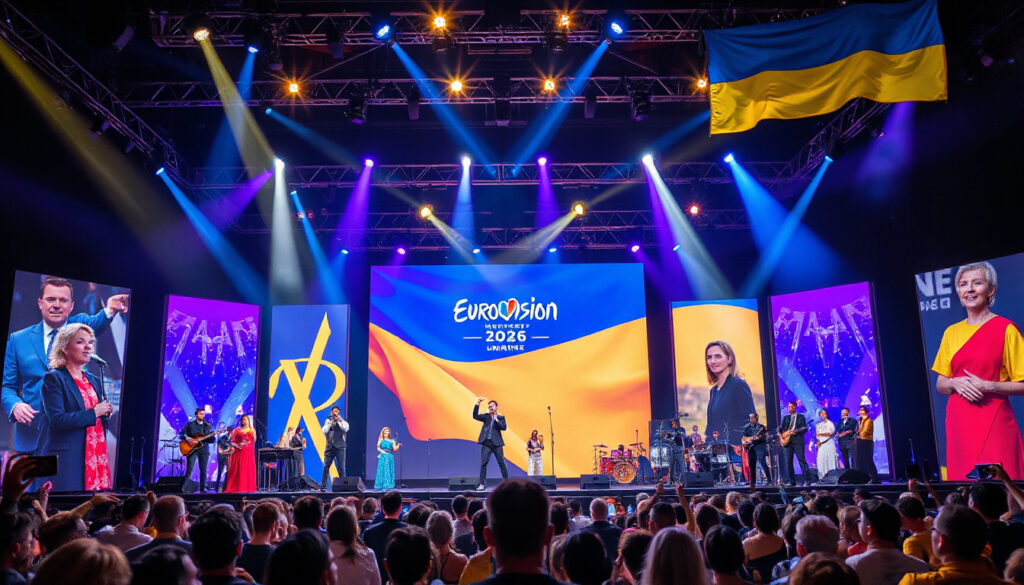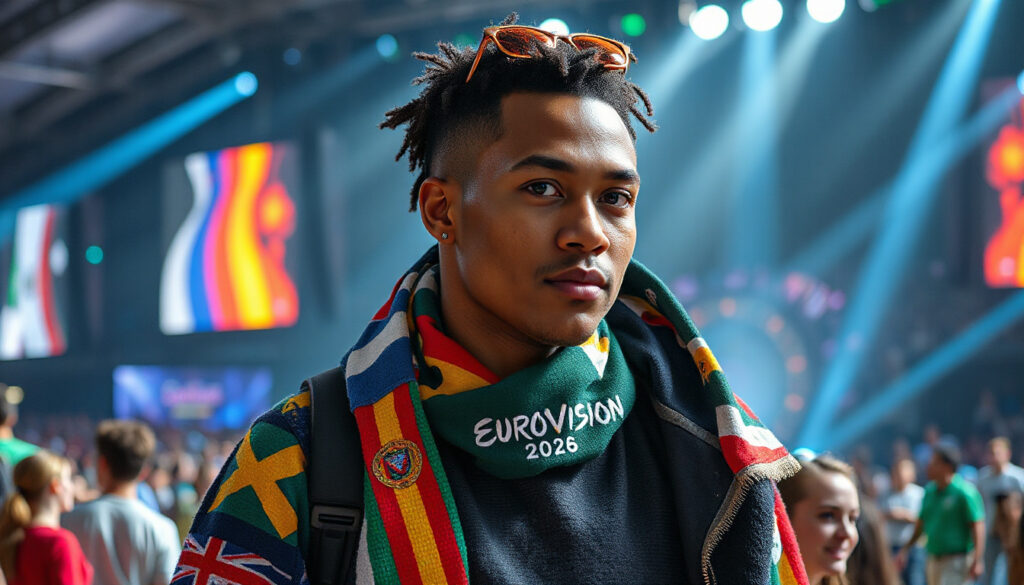Eurovision 2026: What Ukraine’s Role Reveals About Political Currents in Europe
Every few years the Eurovision Song Contest grows to be more than a music show. It turns into a mirror for Europe’s changing politics. With Eurovision 2026 nearing, Ukraine sits at the heart of a contest that shows political tensions and new moves across Europe. We see Ukraine and its neighbors act on the stage. They use the event to shape views, stand by their identity, and work through issues on the world stage.

How Eurovision Builds National Identity and Influence
Eurovision stays known as a fun contest. It also acts as a stage where nations show how they see themselves. For countries leaving behind a Soviet past or facing new rivals, taking part means to show their culture and politics. Ukraine has joined the contest since 2003. Its first songs mixed modern sounds with old traditions. This mix broke ties with the past and pointed toward a closer link with Europe.
When Ukraine won hard in 2004 with “Wild Dances,” the tune took hints from its Hutsul roots. This win came before a wave of protest in favor of change. In 2005, Ukraine hosted the contest. They used the stage to show a modern face and deep links with Europe. Their song in that year, “Razom nas bahato,” stressed the strength of a group. The song tied in with a time when the country chose a new path. Ukraine used Eurovision as a tool to shape views and support change within the country.
Political Messages in Song and Stage Acts
Ukraine’s songs have sometimes sent clear political signs. In 2007, the song “Dancing Lasha Tumbai” was read by many as a hint to leave Russia behind, even though officials did not agree. This message shows how music can form a soft kind of power. It tells a nation’s tale and shows its stance without starting a fight.
Russia’s style on Eurovision differs from Ukraine’s. From the mid-2000s, Russian acts showed scenes of grand shows and high-class performance. They wished to send a word of strength and a modern look from their side. The 2009 contest in Moscow was set up to give Russia a new face during hard times. Then, when events in the real world changed things, Russia was banned in 2022 after the conflict with Ukraine. This change shows that what happens in the world can change the contest.
The 2026 Contest and New Boycotts: Europe’s Divides on Stage
Eurovision 2026 will happen in Vienna. Yet, the event faces new troubles. Several countries threaten to skip the show because of Israel’s entry. They worry about actions in Gaza. Ireland, the Netherlands, Spain, and Slovenia point to Israel’s military acts and worry for human issues. They say they will not join if Israel takes part. In contrast, countries like Germany say they will join only when Israel stays in the contest. Germany stands with inclusion and speaks out against the idea of mixing politics with the contest. Austria warns that a withdrawal against Israel might harm its chance to host. The European Broadcasting Union walks with care. Each broadcaster will choose while the contest tries to show unity and share cultures.
Why This Matters for Ukraine and Europe
Ukraine is caught in many issues in Eurovision 2026. Its clash with Russia led to Moscow’s exit from the contest. This change shifted votes and links between nations. Now, the threat of a boycott over Israel builds more strain. The event now shows conflicts that extend into culture. Eurovision now acts as a stage where countries show sides, speak out against feels of wrong, or stand together without a direct fight. Ukraine’s steady role in the contest shows its bond with Europe and its stand against harm from outside. At the same time, the changing ways that countries join point to deep splits in European politics and culture.
Key Takeaways from Eurovision’s Political Moves
• Eurovision is more than a show; it acts as a way for countries to shape how the world sees them through song and stage.
• Ukraine has shown a clear break from Russian influence by joining Eurovision. Its move ties culture with changes at home.
• Russia’s past acts were meant to show power and a modern look. Once harder events took place, they were banned, showing that real-world events change the contest.
• The plans to skip the event because of Israel’s part show that Eurovision holds space for deep global conflicts. This mix asks if art can ever be free of politics.
• For fans and experts, Eurovision now gives a view into the bonds, splits, and beliefs forming Europe today. Ukraine’s role brings home a contest over belonging and identity on the continent.
Looking Ahead: Viewing Eurovision as a Political Barometer
With Eurovision 2026 facing skips and pressure, the battle over the stage becomes a live study of how culture meets politics. For those who watch Ukraine and the shifting links among European nations, the contest has much to show. As Ukraine takes part and others answer in kind, the event gives clues on future talks and thoughts across Europe. Eurovision stands at a point of unity and split views. How nations share their tales in song may show much about Europe’s road ahead.







